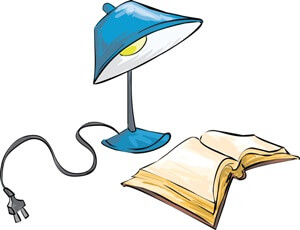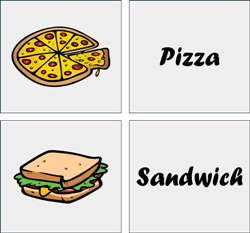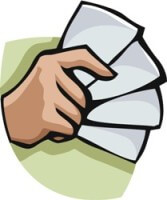How to Study
Vocabulary Words
Do you want to know how to study vocabulary words? First, get a list of them. A vocabulary word list is a group of words that belong to a certain subject.

Click Here for Step-by-Step Rules, Stories and Exercises to Practice All English Tenses
Here are some examples:
- A list of common verbs (be, go, do, have, etc.)
- A list of weather adjectives (rainy, sunny,
stormy, etc.)
- A list of family nouns (mother, father, sister, brother, uncle, etc.)
You can visit Vocabulary Websites (Word Lists) section for some useful word lists. You can also take advantage of our illustrated lessons with word lists for different topics and situations. For example: restaurant vocabulary, airport vocabulary, wedding vocabulary, sports vocabulary, banking vocabulary, etc.: English Vocabulary Word Lists (Illustrated).
Now, how do you study
these word lists?
There are a few things you can do.
1. Make up example sentences with each word on the list.
Just reading the word or memorizing it is not enough, at least not in most cases. But using the new word in sentences of your own, can really take you one giant step forward. Try it yourself, and see the results.For example, let's say you are learning the word "resign" (which means "to leave your job"). You can make up some example sentences:
- "I am sorry, but I must resign."
- "The new manager is already leaving, he
resigned yesterday."
- "She loves her job and she will never resign."

2. Use the words in a story.
Take the list of words and write a short story with all of them. The story doesn't even have to make perfect sense. Even better – make it ridiculous! This can actually be fun. Check out the following example.Let's say you are studying some verbs beginning with the letter E:
earn, eat, end, enjoy and estimate.
You can write a short story such as this:
"Andy was eating dinner and enjoying a quiet evening, when he started thinking about his future. He estimated the amount of money he must earn. This ended his enjoyment."

3. Write the words on flashcards and practice daily.
Vocabulary flashcards are special cards that you use to memorize data. They are called that way because the cards are flashed (shown quickly) to the learner. There are several things you can have on a flashcard: a word in English, a word in your own language, a photo or an illustration.For example, you can prepare a set of cards with "food words". Write the English word on one side of the card, and on the other side put a picture, or write the translation in your own language.
Here are two examples of food flashcards (the front side of the card is on the left, and the back side of the card is on the right):

Vocabulary flashcards are good tools to use while learning a new language. The bonus in using them is that you turn it into a game.

4. Use dictations to help you memorize spelling.
Make a dictation. You can do it all by yourself. Simply follow this process:- Write the
words (usually no more than ten at once) on a piece of paper. Use two
columns: one for English, and one for the translation in
your language.
- Fold in the piece of paper so that you can only
see the translation in your own language.
- Take
another piece of paper and write the English words that
match the translated words. Don't look at the answers! The
point
is remembering by heart.
- When finished, compare the English words you
have just written to the ones on the original paper.
A word of warning though: don't use a big portion of your time for dictations. Just like flashcards, they work on simple memorization, rather than understanding. Therefore, you should use them as a supplemental exercise, and not as the main one. If you don't practice using these words later on, you can definitely forget them in the future.

5. Practice the words in a conversation with a friend.
What are good friends for? Grab a friend, tell him or her what you need, and start practicing! Make a conversation, and try to use as many new words as possible. The conversation doesn't have to make sense. Actually, sometimes it is more fun if it doesn't... The important thing is that you improve your vocabulary and have some good laughs in the process!
Related articles:
- Building
Vocabulary and Some Common Mistakes
- Activities
for Teaching Vocabulary: How Can You Teach (or Learn) New Words?
- The
Perfect English Dictionary
- Vocabulary Websites (Word Lists)
Visit the Vocabulary Activities section to improve your vocabulary!
Get Updates, Special Offers, and English Resources
Download your FREE GIFT (the first two chapters of
English Short Stories Book and Workbook)
as soon as you join!

By submitting your email, you consent to receiving updates and newsletters from us and to the sharing of your personal data with third parties for the purposes of sending you communications. We will not spam you. You can unsubscribe at any time. For more information, please see our privacy policy.





